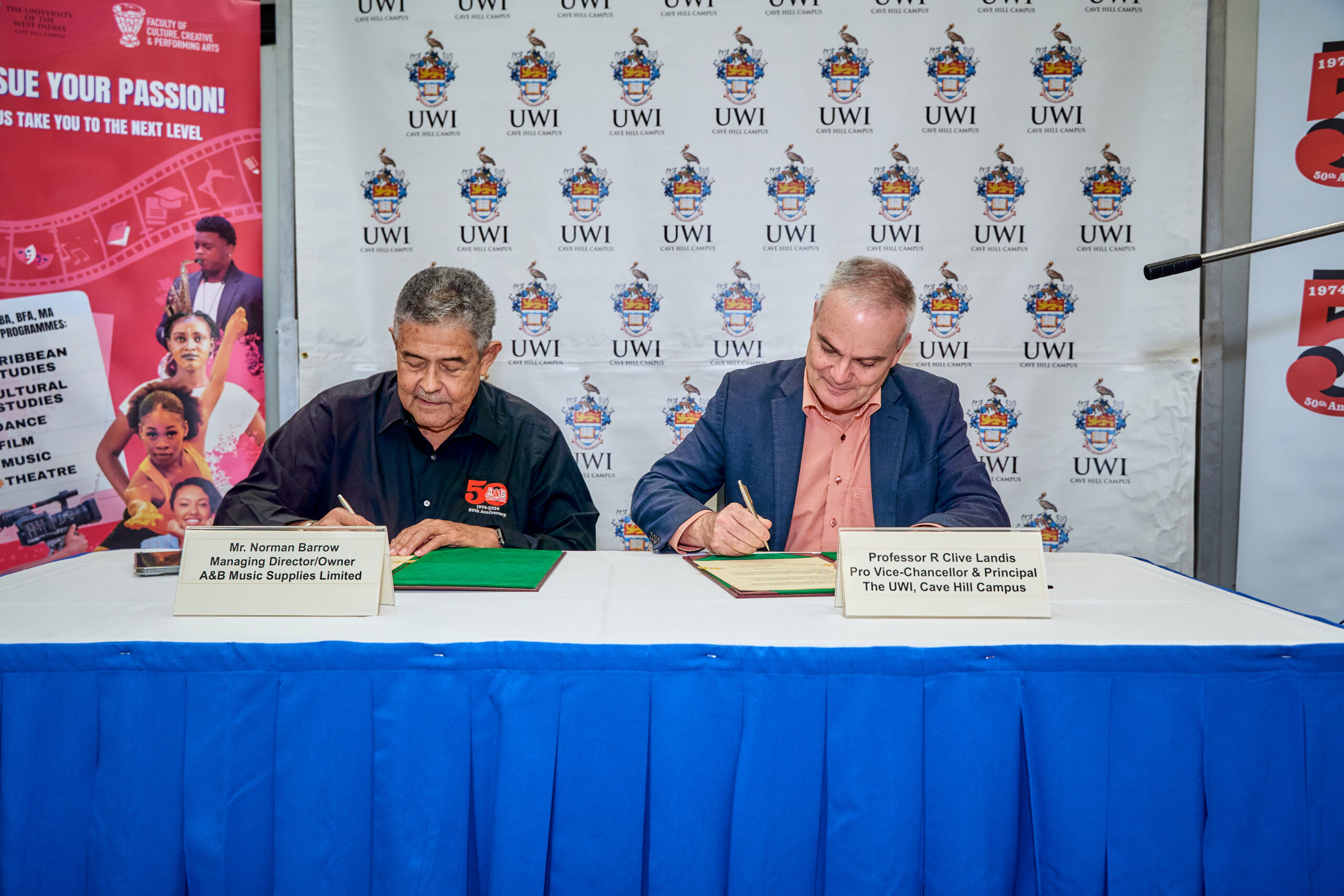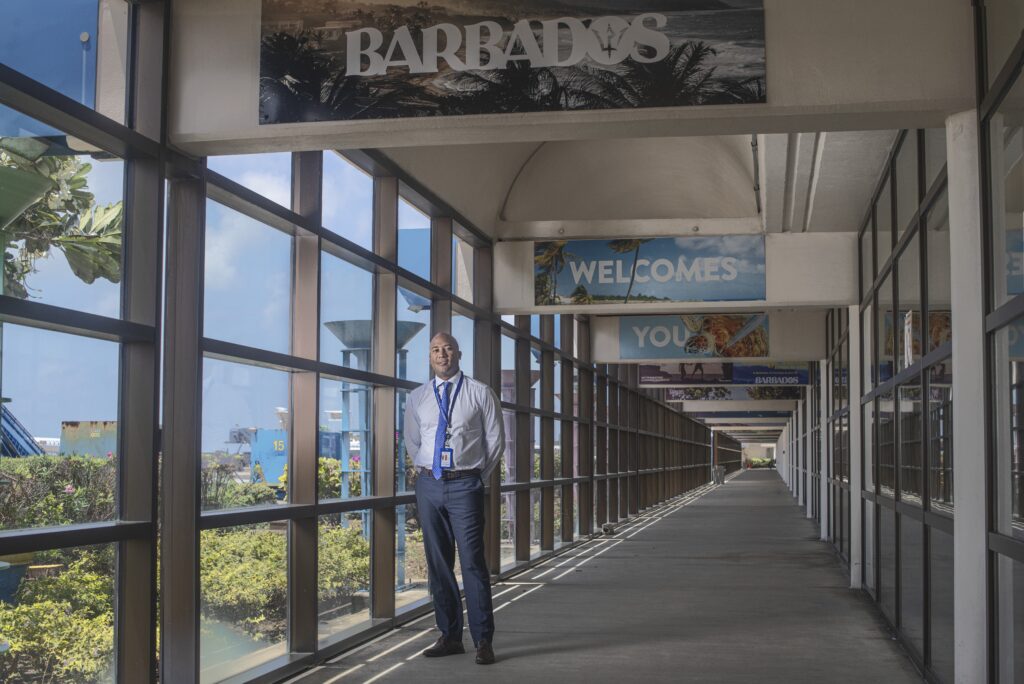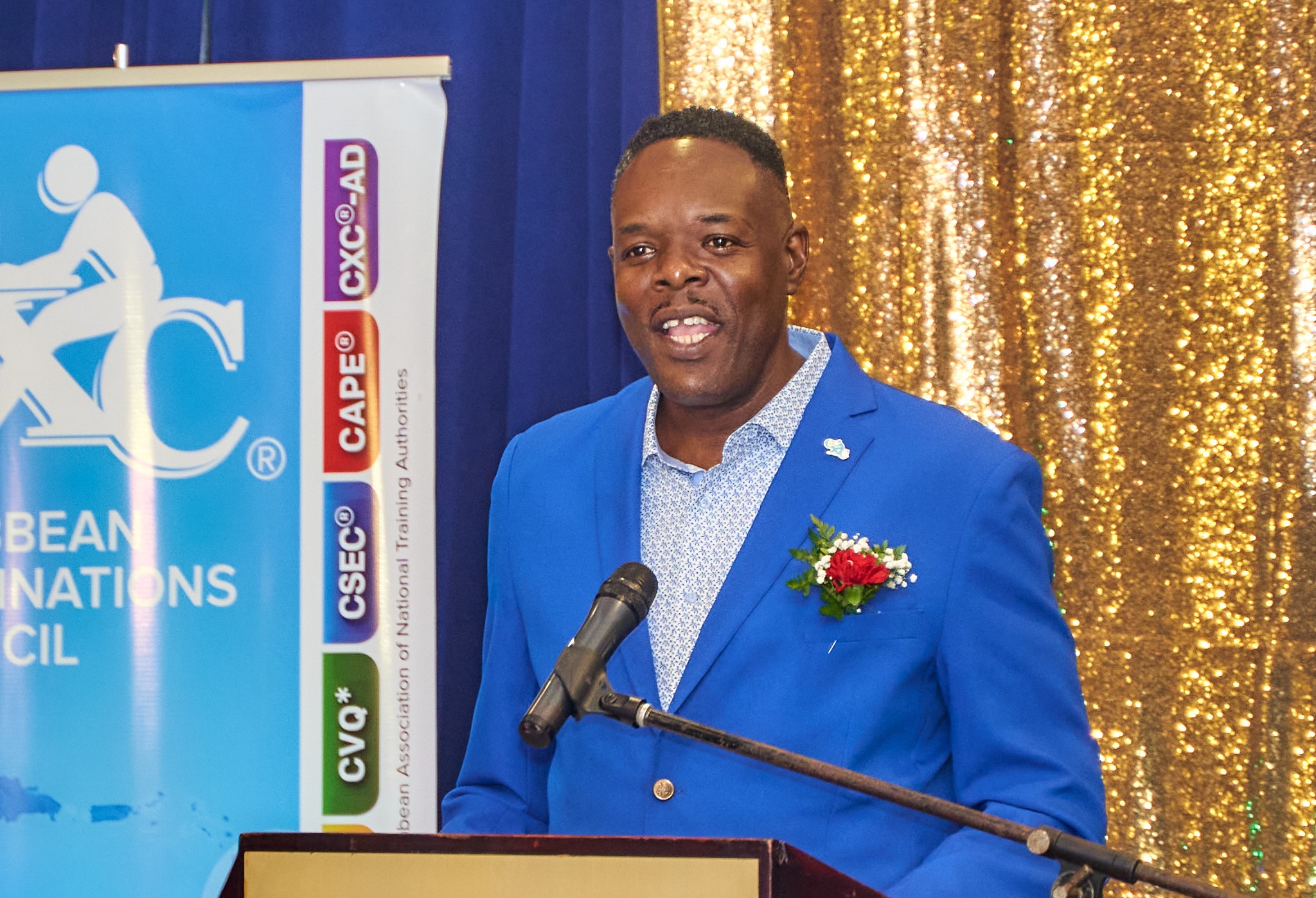Norman Barrow Encourages Barbadian Musicians to Prioritize Creativity and Collaboration for International Success

January 17, 2025
Norman Barrow, a prominent figure in the music industry, advises Barbadian musicians to prioritize creativity and collaboration over competition for international success. Collaboration with the University of the West Indies aims to support music students.
Long-time recording and music industry leader Norman Barrow, has urged Barbadian musicians to prioritise creativity and collaboration over competition to achieve greater international success.
Speaking at a memorandum of understanding (MOU) signing ceremony with the University of the West Indies at Cave Hill Campus, Barrow, managing director of A&B Music Supplies, called for a shift in approach to music production and marketing.
The MOU between his firm and the UWI will provide scholarships and other support to students of the Faculty of Culture, Creative and Performing Arts.
Barrow, expressing gratitude to the university for the opportunity to support music students in their academic journey, encouraged the next generation of musicians to embrace creativity in their craft. He urged them to avoid being constrained by preconceived ideas about how music should be produced or marketed.
He said: “I am hoping that the opportunities provided for aspiring creatives will produce a different way of thinking, which will encourage them to realise that competing for a prize is not the way for us to get our music into the mainstream of international recognition.
“We must work together to make sure our music has global appeal. Machel Montano recently said: ‘We must improve the quality of our music, our writing, our marketing, and the quality of our message.’”
Barrow noted that the growth seen with the reggae genre since its inception should serve as a fitting blueprint for how local music should approach their music production.
“I have always held the view that one of the main reasons that reggae music was able to become a recognised genre in the world of music, is because the Jamaican artistes never competed, and their writings were never guided by a set of rules,” he said. “They were free to produce music that appealed to the world.”
He stressed: “I am not criticising anything that has gone before, but it is time for a change. We must focus on producing music that we can sell to the world. It is vital for our existence.”
Barrow disclosed that the MOU would not only fund future scholarships for students but also establish a digital archive featuring music he has produced over the years across the region, which will provide students with valuable resources for research.
“One of the objectives of the agreement that is very dear to me is the establishment of the Norman Barrow Digital Archives, which will be stored at the University of the West Indies Cave Hill Library. This will assure that the vast number of live recordings that I have done will be safe and be available for students to access for historical information, rather than these recordings ending up in the garbage after I am gone,” he said.
In expressing thanks to A&B Music Supplies for its support, Professor David Akombo, dean of the Faculty of Culture, Creative and Performing Arts, said: “We are very pleased to be associated with A&B Music Supplies to support our music programmes. This scholarship will enhance our growth in terms of supporting our students, who are in need [for] creative scholarships, particularly in music education. In addition, A&B will also support our faculty in acquiring musical instruments from abroad. So we are very pleased with this collaboration.”
Principal of UWI Cave Hill, Professor Clive Landis, said other private sector stakeholders should follow A&B’s example and seek to heavily invest in education.
“As I have often stated from the outset of my tenure as principal, I wish to deepen the relationship between UWI and the business community. Partnerships between academia and industry are vital for driving innovation, creating new opportunities, and supporting the development of our society,” he said. “When the private sector invests in education, research, and creative initiatives the impact is felt not only within institutions but also in the broader community and the economy.” (SB)


